Märklin Autumn News: New Decoder Generation
With the introduction of the mLD (Märklin Locomotive Decoder) and mSD (Märklin Sound Decoder) a few years ago, Märklin showed that they were serious about providing a good allround decoder family for the model railway.
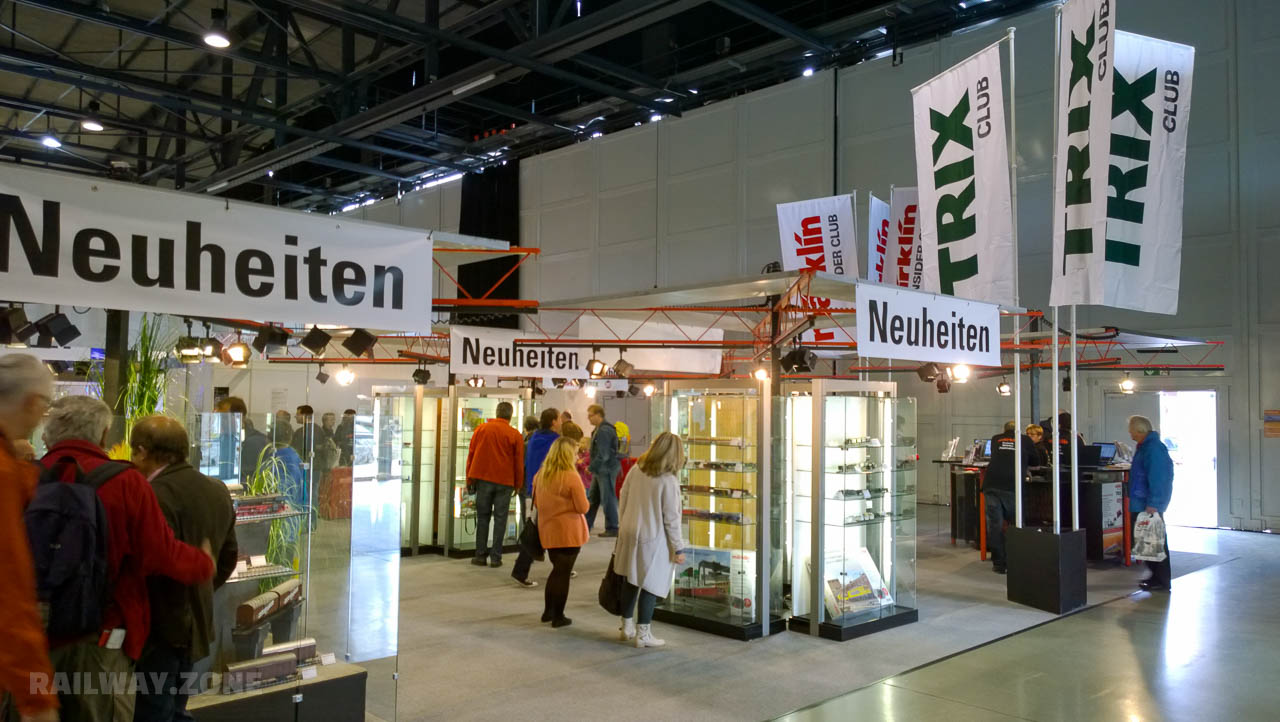
This year's autumn news introduces the new generation called mLD3 and mSD3. These new decoders are a massive improvement in both hardware and software. Here is a round-up of the new decoders and their features.
The Specifications
The decoders support the most common protocols
- DCC (works with every available digital command control system)
- mfx
- MM1 (Old Märklin Motorola)
- MM2 (Old Märklin Motorola) (fx)
The new 32-bit processor makes sure that the decoder will respond to commands quicker than before and the 4096 internal speed steps will provide smooth acceleration and running.
To make room for future software updates the decoder's internal software storage is now 4 times larger than before. Both decoders are also prepared for 32 functions, which is twice as much as the current generation's 16 functions.
The New mLD3
For locomotives that do not need sound Märklin's new decoder is called mLD3. The decoder has several improvements over the old decoder.
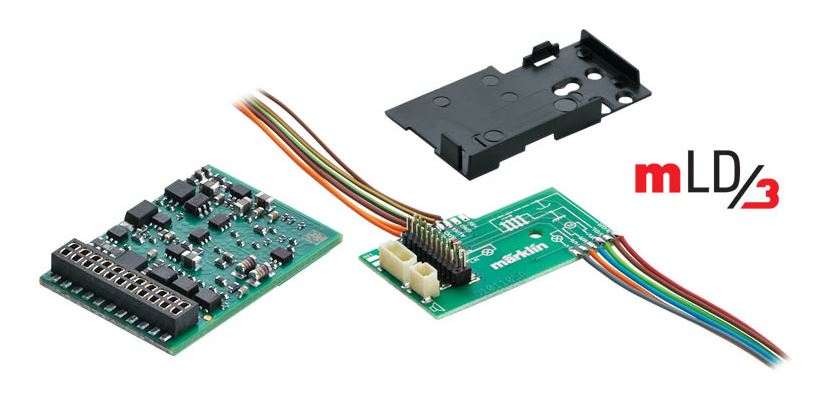
The standard mLD kit includes a mounting plate with cables. Photo: Märklin.
The decoder will be available for the 21-pin MTC socket and the NEM 8-pin socket. Unfortunately the decoder is not available in a PluX socket version. A shame really, since this forces me to go elsewhere when digitalizing my PluX locomotives.
The New mSD3
Locomotives with sound can benefit greatly from the new mSD3. The new sound decoder now has a 64 Mbit sound storage which will enable the decoder to do much more than the previous version, which includes more- and longer sound effects. Other than that the specifications of the mSD3 match those of the mLD3.
A special kit will be available for the Märklin / Trix locomotives in the so called "Hobby range". The kits will be bundled with replacement motherboards for the locomotives. Versions available will come with sound schemes for a diesel locomotive and an electric locomotive.
The procedure for installing these special kits is the same as for the old generation.
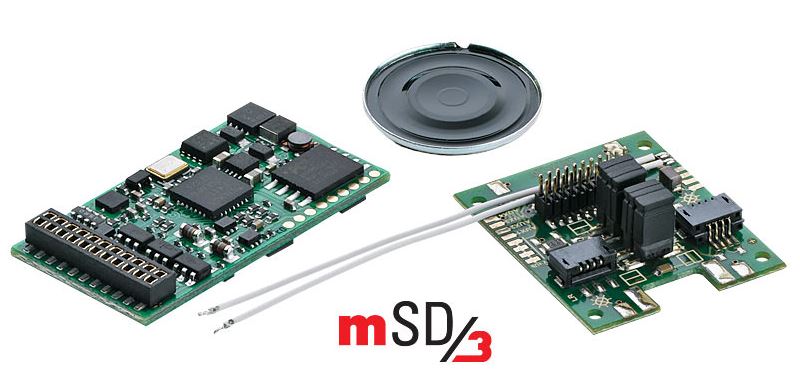
The kit for the Hobby range includes a new motherboard for the locomotive and a speaker. Photo: Märklin.
The standard versions will come bundled with retro-fit accessories like a mounting plate and screws. These will be available with preloaded sounds for a steam-, diesel- and electric locomotive.
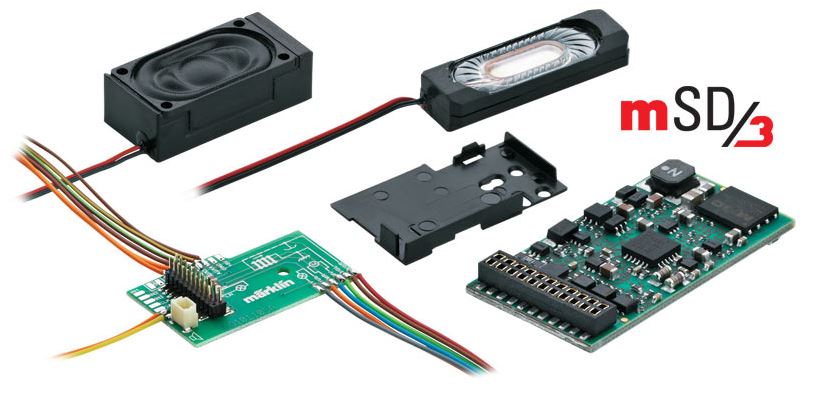
The standard kit includes a plate for mounting the decoder and two different speakers to choose from. Photo: Märklin.
Note: If your locomotive already has a sound system and a 21-pin MTC socket, you can plug the decoder right in. The plate and screws are for locomotives without sockets.
Tip: You can always download new sound schemes from the Märklin website, and replace the preloaded ones using the Central Station 2. The Märklin website maintains a sound library with operating sounds for different classes of locomotives.
The Right Tool For The Job
Märklin also jumps the easy-programming-tool bandwagon and joins other manufacturers that have special hardware for programming their respective decoders.
The Decoder Programmer is a sort of USB-stick that allows you to program the decoder using your PC. This is often much easier than programming the decoder from the digital system using DCC, or from the Central Station, should you use mfx.
Not much is currently known about the hardware, but it sure is a nice addition to the product range. Time will tell if it actually makes the job easier or if programming the "old way" is just as good.
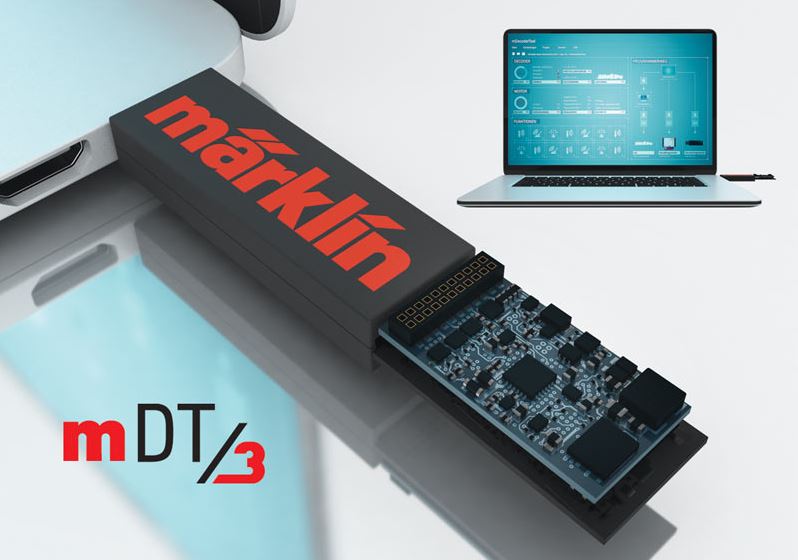
The Decoder Programmer looks like a USB-stick (computer rendered image). Design by: Märklin.
Thoughts
I am truly excited about the new decoders. A few things struck my mind though:
- There is no mention of support for the mfx+ feature set. mfx+ contains the Märklin World of Adventure features. Basically mfx and mfx+ are the same, but mfx+ enables features like fuel consumption, driver's cab and so on. I would love to see these features in the mLD and mSD decoders.
- There is no PluX version available. I personally like to keep my decoder types to a minimum, this is not possible with the Märklin decoder, since the lack of a PluX version forces me to look at another decoder brand for my PluX locomotives.
I have been a happy user of the previous generation of the Märklin decoder family, and I think I will be just as happy with the new generation! If you have a locomotive with a 8-pin or 21-pin socket, try out the Märklin decoder family, I think you will be happy with the result!
Happy Modelling!